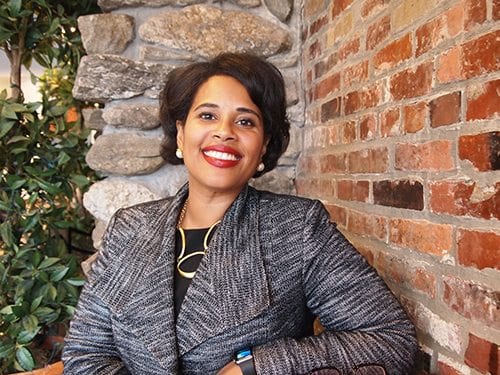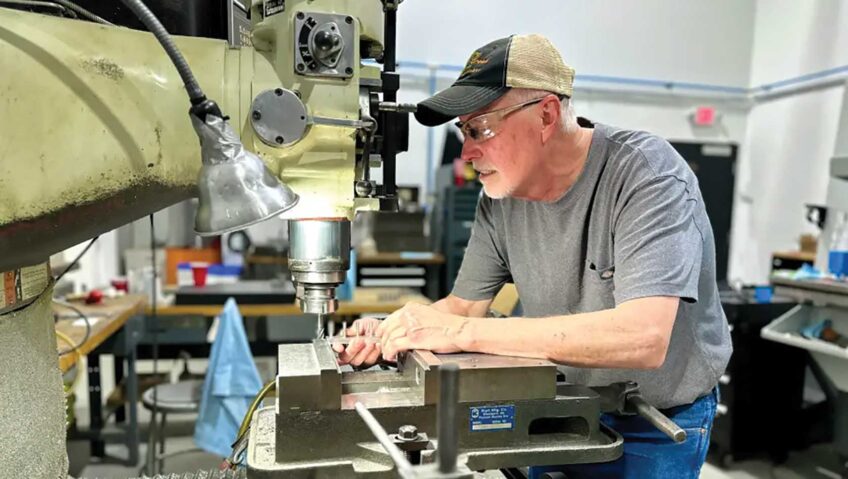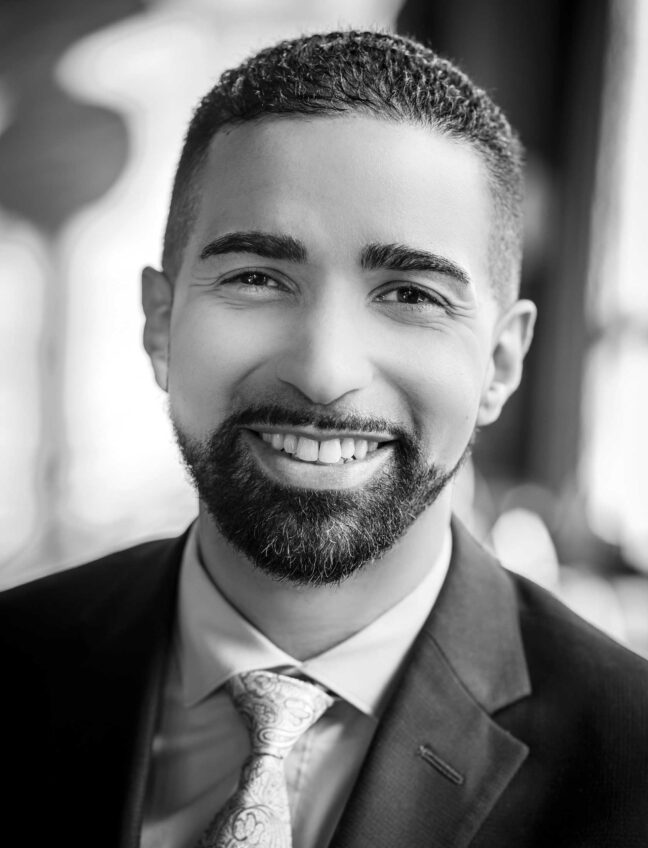Tanisha Sullivan is the new face of Boston NAACP
On her agenda: Youth, mental health and business

The Boston Branch of the NAACP has a new president. After six years in the role, Michael Curry is handing off the torch to Tanisha Sullivan, a Brockton-raised lawyer and former Boston Public Schools chief equity officer.
Sullivan, who ran for the position unopposed, said she brings both familiarity with the issues and organizational know-how to improve internal operations. Slated to take up the mantle this winter, she says her agenda for the next few months will include holding listening sessions to identify community needs, filling out her new team and shaping her agenda based on team and community response.
Sullivan sat down with the Banner to discuss her vision and top concerns, which include medium-sized business development, mental health awareness and treatment access, youth engagement and volunteer benefits.
“Being a part of this legacy is a tremendous honor and awesome responsibility,” she began. “I’m hopeful we’ll really see some transformation, some tangible things we can point to.”
Her predecessor, Curry, was credited with revitalizing the Boston branch, increasing its visibility and expanding its membership. During his time as president, he also advocated for police use of body-worn cameras and federal investigation of discrimination allegations at Boston Latin School, and was involved in state and city redistricting.
Youth and education
Sullivan said she seeks to engage youth more integrally into the branch’s operations — bringing them into membership on committees beyond the Youth Council. Other goals include assisting in the establishment of autonomous high school, college and university NAACP chapters. Previously, the Boston NAACP helped East Brockton High School establish a chapter.
She noted a need to broaden educational advocacy work to address achievement gaps in METCO and private and parochial schools, not only in Boston public schools.
Sullivan said she aims also to expand on Curry’s “Pipeline to Leadership” summer jobs program by adding new education modules to its curriculum.
The NAACP’s youth outreach had an impact on her own life, Sullivan says. She credited the NAACP with helping her grow and discover her skills, beginning at age 6 when she was receiving hair cuts from Nan Ellison, then-president of NAACP Brockton. While Sullivan had her hair done, she would listen to the women at the salon discuss social issues, introducing her to rights discussions. When Sullivan was 9 or 10 years old, Ellison invited her to speak at a NAACP breakfast, and during her teen years, she was sponsored by the Boston branch in the ACT-SO competition program.
“NAACP poured into me, believed in me, as a young person, helping pull out my gifts,” she recounted.
Business
Sullivan’s work as an attorney has included involvement in the Economic Justice Project and Lawyers’ Committee for Civil Rights, where she helped entrepreneurs with issues related to forming and growing businesses, she said. While she aims to continue advancing small business support, she also expressed interest in exploring the demand for support of medium-sized businesses, in the $1 million to $3 million range.
Mental health
Another area she says needs more attention is mental health — both increasing awareness of mental health issues and available resources and encouraging people to actually make use of them.
Benefits for volunteers
While the work that volunteers do advances issues that benefit the community, Sullivan said such work also should bring tangible benefits to the volunteers themselves, such as skills training for those with careers, or hands-on internship opportunities for students. Among her goals: encouraging local businesses to donate training time to nonprofits.
Membership
and partnership
The NAACP now has a relatively large membership and would benefit from connecting with it more deeply, Sullivan said. This means opening a more fluid line of communication and pushing the message that the NAACP seeks to uplift the entire community, not just one segment.
Among the Boston branch’s key partners are the Lawyers’ Committee, MassVote, ACLU, Urban League and Delta Sigma Theta, Sullivan said. She hopes to deepen collaboration with city government, including working more with Felix Arroyo’s Health and Human Services department, and develop new partnerships with grassroots social justice organizations that may be less institutionally established.
Regarding local government, Sullivan noted there have been promising initiatives and it will be important to ensure these initiatives are fully realized.
“We’ve seen some very good work coming out of the Office of Economic Development at the mayor’s office,” she said. “The announcements are great — but we need to be sure they have full implementation.”
Massachusetts roots
Sullivan grew up in Brockton before attending a private high school in Braintree and the University of Virginia. She returned to Massachusetts and studied law at Boston College Law School. Besides her NAACP involvement, she serves as a board member for the Girl Scouts of Eastern Massachusetts and ABCD and is a regional leader of Delta Sigma Theta.
Among her early influencers was her mother, who served as the publisher of the “Black Pages of New England,” a directory of African American-owned businesses.
“I grew up watching my mom really push for diversity before it was a thing we came to expect,” Sullivan said. “As a woman and a black woman, that really drove my interest.”
As for running for local NAACP president, “It was the right time,” Sullivan said, where her skills matched the organization’s need. “Michael [Curry] has done a tremendous job elevating the branch and it’s ripe now for operational transitions and to be a leader in the fight for justice and civil rights.”






